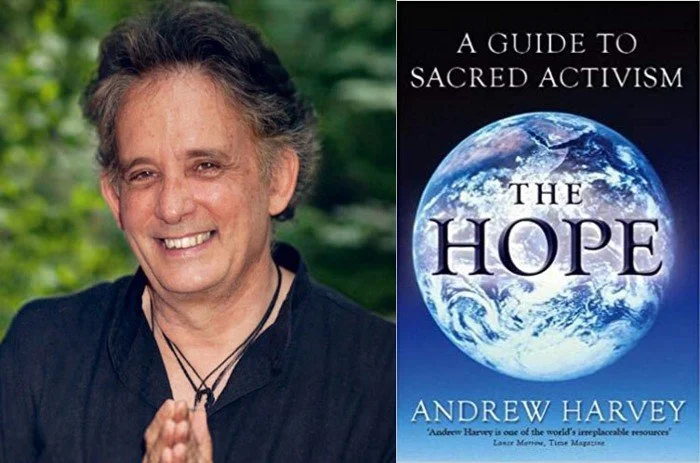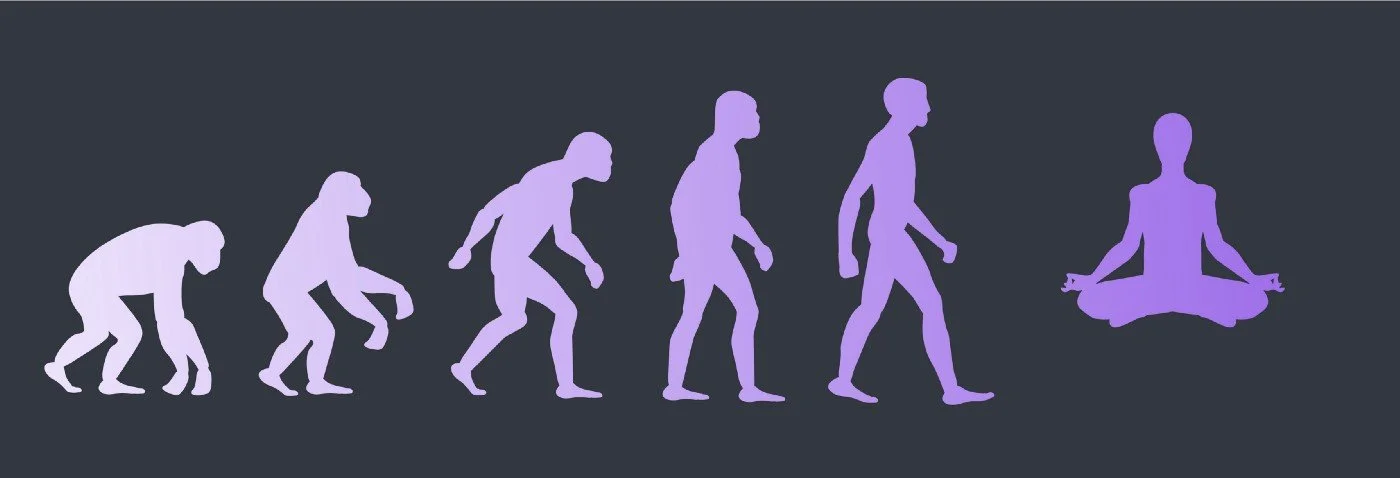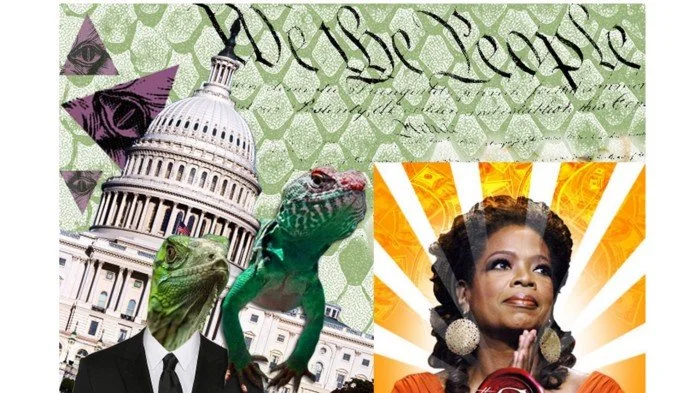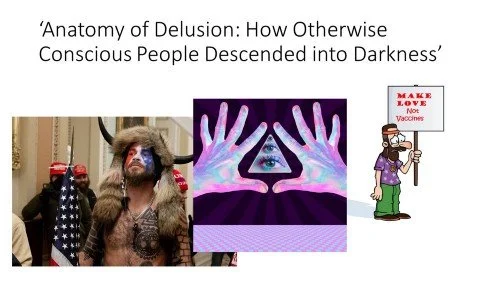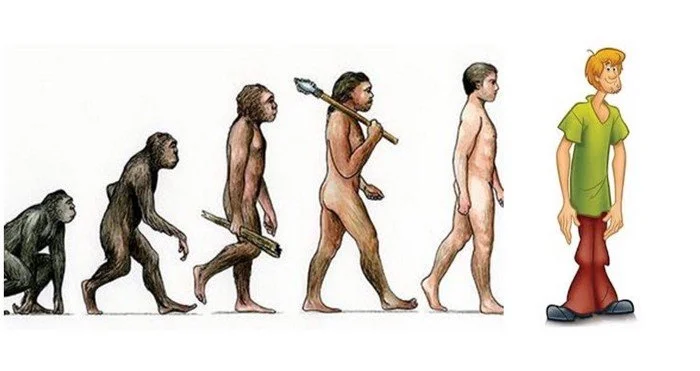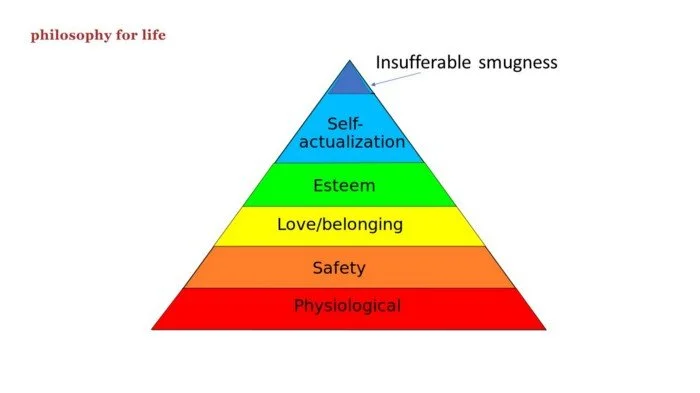In 2016, while working on The Art of Losing Control, I conducted a survey on spiritual experiences. The results were interesting — 85% of participants reported having one or more such experience, but 72% said they thought there was still a taboo around such experiences.
Read MoreIn this chapter, we will look at how Julian Huxley and his peers developed the religious creed which he would later call Transhumanism, and how their visions of scientific utopia inspired his brother’s humorous novel, Brave New World.
Read MoreIf spirituality is a new religion which arose in the 19th century, then right now feels like the Reformation. It’s a moment of disenchantment, scepticism, criticism, iconoclasm and denunciation. Within the last three years, many people within New Age spirituality have spoken up against some of the problems within the culture, from conspirituality to grifting to psychedelic abuse.
Read MoreI’ve been reading Erik Davis’ magnum opus, High Weirdness. Davis is the pre-eminent chronicler of Californian spirituality, and this book masterfully explores a particular scene — the Californian counter-culture in the 1970s, when hippy optimism curdled into paranoia and conspiracy theories, and everyone suspected everyone else was a narc.
Read MoreIn 1921, the British psychologist William McDougall declared:
Read MoreI have two hobbies — psychical research and eugenics. So far as I know, I am the only person alive today who takes an active interest in both these movements. [‘The need for psychical research’]
This is the seventh entry in my spiritual eugenics series, which explores the overlap between eugenics and New Age spirituality. You can find the whole series here.
You probably haven’t heard of Edward Bulwer-Lytton. If you have, it’s likely because he was the author of supposedly the worst ever opening sentence of a novel: ‘It was a dark and stormy night’ — a line so cringe, it’s inspired an annual prize for bad writing.
I confess I have become more cynical this last two years, particularly about my culture — ie New Age spirituality.
If someone calls themselves ‘spiritual’ these days, sadly it’s usually short-hand for ‘anti-vax, anti-science, a sucker for conspiracy theories or snake oil health remedies, with an inflated sense of their own spiritual advancement and expertise (particularly with regard to healing), combined with actions that actively harm others, out of selfishness or simple cluelessness’.
Is that too harsh?
Read MoreThis is the latest chapter in my project to explore ‘spiritual eugenics’. It looks at occult eugenics in the practices and books of members of the Hermetic Order of the Golden Dawn, a very influential occult society of the late 19th century. Its members believed they could use sex magic to engineer the incarnation of highly-evolved beings — an idea which would appear in later fantasy fiction, including Frank Herbert’s Dune.
Read MoreIn 1883, the same year that Francis Galton coined the word ‘eugenics’, a strange religious text was published, announcing the coming of a new type of human. The grand announcement went completely unnoticed at the time, and yet it would capture the imagination of the world in the coming decades. The book, of course, was Friedrich Nietzsche’s Thus Spake Zarathustra.
Read MoreIn 1967 Joan Didion went to San Francisco to cover the hippy scene in Haight Ashbury. After spending weeks hanging out with the hippies and flower people, she didn’t feel she ‘had’ the story, but she filed it anyway, and the essay became a classic of New Journalism and a famous takedown of vacuous spirituality, called ‘Slouching Towards Bethlehem’.
Read MoreLast week I drove to Sedona, in Arizona, to find out how conspirituality has affected the New Age capital of the United States.
Why did this little town of 10,000 people become such a New Age Mecca? It’s in a gorgeous location, hidden away beneath giant red-rock sandstone protrusions, like alien vessels from an ancient civilization.
Read MoreThe aim of the ‘Spiritual Eugenics’ research project is to explore the overlap between New Age spirituality and eugenics. It will explore how New Age spirituality adapted Darwin’s theory of natural selection into a theory of the ‘spiritual evolution’ of a new species of superbeings, a master-race.
Read MoreProfessor Mihalyi Csikszentmihalyi, who died this week aged 84, was one of the world’s best-known psychologists, famous for developing the concept of ‘flow’. I interviewed Csikszentmihalyi over the phone about his latest essay, ‘The Politics of Consciousness’, published in a new collection of essays called Well-Being and Beyond.
Read MoreI had Post-Traumatic Stress Disorder from 1995 until 2001. Seven years of fear, anxiety, depression and paranoia, which I feared would last forever. But I got better, thanks to a near-death experience.
Read MoreBy eugenics I refer to a programme, launched in 1883 by Francis Galton, to improve the genetic quality of human beings, through negative eugenics (preventing those deemed genetically unfit from passing on their genes, either through voluntary or involuntary sterilization, confinement, or extermination) and through positive eugenics (encouraging those deemed genetically fit to pass on their genes more, through breeding with others deemed fit, or through donating their seed to ‘genius sperm banks’).
Read MoreOn March 17 2020, a few days after the WHO had declared COVID-19 a pandemic and states had enforced lockdowns on their citizens, Oprah Winfrey’s name trended on Twitter.
Read MoreAbove is an interview I did with Stephen Dinan, the CEO of the Shift Network, which is the biggest platform of online wisdom courses, with around three million customers.
Read MoreAbout a decade ago, I was on the London Underground, when a beautiful woman got onto my carriage and sat a few seats down from me. I felt instantly drawn to her and did something I have never done before or since — I spoke to someone on the Tube.
Read MoreI’m in a waiting phase. Literally — I am waiting in one country to be allowed to enter another. Creatively also — I am waiting to see what happens to a project I have been working on for many years, which has hit a bump and needs to develop into something new. And spiritually — I am waiting for a new stage in my life to begin, and feel filled with uncertainty.
Read MoreAs we’ve explored in previous newsletters, New Age culture has had something of a shocker during the pandemic. It has, in the words of Jamie Wheal, turned into a ‘rat’s nest shitshow’.
Read MoreRick Archer emerged from a troubled youth to become a leading teacher of Transcendental Meditation. 12 years ago, he left TM and started Buddha At The Gas Pump, a podcast where he interviews spiritual teachers. It now has millions of views and downloads. I talked to Rick about how spirituality has changed since he first started meditating in 1968, and how he thinks New Age culture has fared during the COVID pandemic.
Read MoreTwo cheers for the work of Theodore Roszak, a Californian academic who died 10 years ago, and who is one of the more intelligent chroniclers of New Age spirituality. I’ve read four of his books now, and find much to admire in his prose. Encountering his work in New Age culture is like coming across a dapper gentleman in the heart of a steaming jungle.
Read MoreThis is an interview with Eileen Dunn, a life coach who moved to Tulum in October 2020 with her partner Alba, to run a yoga studio. She tells me about her experience of living in Tulum, one of the New Age capitals on the global wellness circuit, during the COVID pandemic.
Read MoreIn the autumn of 2020, in the middle of the pandemic, Dr Emily Grossman and her partner decided to move to Totnes, a small town in Devon that is popular with eco-hippies. Emily looked forward to escaping the Big Smoke and being surrounded by like-minded spiritual activists. A friend encouraged her to join some Totnes online chat groups. It was a rude awakening.
Read MoreWellness has not exactly bathed itself in glory during the pandemic. Over the last 18 months, it’s probably made the COVID crisis worse, spreading misinformation, anti-vaccine propaganda and far-right conspiracy theories.
The pandemic has brutally exposed wellness for its irrationalism, hyper-individualism, and homicidal selfishness.
Read More‘I’m finding it really hard. I’m worried that if I tell people the truth, they’ll put me in a strait-jacket. I’m afraid to tell my own husband.’
It’s June 2020, the middle of the COVID pandemic, and I’m in a room full of dead people…
Read MoreI must have had a drink every day for the last 20 years, more or less. Not loads of drinks, not drinking until I black-out, but at least a beer or two, for 95% of the last 7300 days.
I drink to take the edge of the anxiety I’ve felt ever since I had a couple of bad trips when I was 18, which gradually developed into PTSD and social anxiety.
Read MoreIt sounds like the stuff of comic books, but some very smart people have suggested homo sapiens would evolve telepathic powers. Now Silicon Valley technologists like Elon Musk and Mark Zuckerberg are betting billions on it.
Read MoreHere’s an interview I did with Jamie Wheal, author of Recapture the Rapture and co-author of Stealing Fire. We talked about his life and work, and then got stuck into western spirituality and what’s wrong with it.
Read MoreI carried out an online survey of over 500 people, to see whether they ever found dreams useful in their life, and to test out Jung’s theory of ‘big dreams’ — unusually vivid dreams which occur in times of transition and crisis, and which offer helpful support or guidance.
Read MoreThe space tourism industry blasted off this week, with Virgin Galactic sending the first billionaire ego into orbit, before Jeff Bezos’ ego joins Richard Branson’s in the stratosphere on July 20.
A giant leap for homo sapiens, or pigs in space? You decide.
Read MoreOne of the things I’m wrestling with at the moment is hierarchy in spirituality, and the idea of ‘higher’ and ‘lower’.
I’m writing a book that looks at evolutionary spirituality, and its tendency to elitism and authoritarianism. Many leading figures in the New Age of the 1880s to 1930s preached the coming of an evolved spiritual elite which, they sometimes added, deserved to dominate and control the rest of humanity.
Read MoreThe most common criticism of spirituality is that its narcissistic, consumerist, selfish, apolitical and full of woo-woo magical thinking. That can be true, but not always. There’s one area where spirituality is much less individualistic, more politically active and more prone to evidence-based thinking than other faiths — and that’s regarding the environment.
Read MoreI read the anecdote in a biography, William James: In the Maelstrom of American Modernism, by Robert D. Richardson. James has long been my favourite philosopher and psychologist. But after reading this biography, I love James for his personality and life-philosophy.
Read MoreAt the end of the 19th century, the prospect of the death of God filled people with terror.
It would — we were told — lead to anarchy and despair.
Worried intellectuals assembled new religions — Marxism, Spiritualism, psychical research, Social Darwinism, western Buddhism — and scrambled onto them like life rafts as they awaited the deluge.
But 150 years on, it is extraordinary how absent ‘God’ is from people’s lives, and how little people notice.
Read MoreCan we develop an evolutionary ethics? Can we derive an Ought from the Is of natural processes? People have certainly tried.
Read MoreI’m going to tell you something which may make some of you laugh at me. That’s OK, we all need a laugh these days.
I believe in astrology.
There, I said it.
My name’s Jules and I’m a secret astrology believer.
I got into astrology when I was 23, messed up, chronically single, and desperate to know how my life would pan out.
Abraham Maslow was one of the most influential psychologists of the 20th century, who helped create humanistic psychology, transpersonal psychology, and the human potential movement. He believed he’d forged an empirical spirituality which would save the world from the modern crisis of valuelessness and meaninglessness.
Read MoreIn 1841, a young Danish intellectual called Soren Kierkegaard abruptly broke off his engagement to his fiancé, the beautiful Regine Olsen. They were very much in love. So why break up?
Read MoreLast week, we looked at how Trump strategists — particularly Roger Stone and General Michael Flynn — mobilized the world of conspiracy culture to attack the Clinton campaign and win the 2016 US presidential election. In this article, we look at how the far-right tapped into the world of New Age conspirituality.
I’m going to focus, in this story, on one well-known New Age influencer, called Sacha Stone.
Does it matter if Qanon emerged organically from the infosphere, or if it was synthesized in a lab as a weaponized political meme? I don’t know. I don’t know if we can ever find out exactly who was behind Qanon. When people have posted about it all being a psyop (psychological operation) led by shadowy intelligence agents, it’s sounded like, well, a conspiracy theory.
Read MoreWhen it emerged that the ‘Qanon shaman’, Jake Angeli, was not only the poster-boy for the Trumpist insurrection but also a vocal promoter of psychedelic therapy, it provoked consternation among the psychedelic community. How could a psychonaut support Trump, and fall for an authoritarian and quasi-fascist conspiracy theory like Qanon?
Read MoreI’ve noticed the overlap between New Age spirituality and conspiracy theories during the COVID19 crisis and wondered why it existed and what we can do about it.
Read MoreMichael Murphy co-founded Esalen, a cross between an adult education college, a research institute, and an ashram, in 1962. It’s had a huge influence on contemporary spirituality, and was the incubator for everything from ecstatic dance to Authentic Relating to holotropic breathwork. Here, Murphy tells me how he was inspired by his friends, Alan Watts, Gerald Heard and Aldous Huxley, and how Esalen managed to keep going for 53 years, when so many spiritual experiments went very wrong very quickly.
Read MoreHis simple, hopeful message - humanity is waking up and you are a part of this great evolution - made more sense in 1999. What does he have to say to 2019? I went to see him speak in London, to find out.
Read MorePeople have been heralding the arrival of a new paradigm, in which consciousness is paramount, for over 140 years. So why hasn’t it arrived? I asked some leading thinkers in the world of transpersonal psychology.
Read MoreThree friends emerged from a consultation with a celebrity Glasontonbury shaman with remarkably similar predictions for their future. Were their destinies bizarrely intertwined? I went to find out.
Read MoreCan education help us to become more well-rounded, integrated, wise and whole people? This was the project explored both by Aldous Huxley, and by his ancestors - Thomas Huxley and Matthew Arnold - in their famous dispute over the role of sciences and the humanities in education.
Read MoreRowan Williams on the role that mysticism and spirituality can play in helping us confront the systematic unreality of our economic and cultural system.
Read MoreLast week I came across a small book called The Making of a Counter Culture, written in 1969 by an American historian called Theodore Roszak. I loved it. Roszak was the first to coin the phrase ‘the counterculture’.
Read MoreThis is about quite a dark subject: the Soviet gulags. I don't recommend reading this essay if you suffer from clinical depression. If you're just somewhat got down by global politics, I do recommend you read this, to realize that things can be a lot worse, and to appreciate what we have going for us.
Read MoreOur psyches are deeply connected to the material and symbolic worlds we weave around us. The habitat of our daily lives re-inforces our habits, for good and ill. All our stuff – our apartments, our clothes, our books, our TV, our online activity, our food, our relationships – helps make us who we are, in a powerful feedback loop.
Read MoreWhile I was in San Francisco, I got the chance to meet Michael Murphy, one of the founders of the Esalen Institute. It's a cross between a spiritual retreat centre and an adult education college, perched on the cliffs of Big Sur next to some hot springs. It's been very influential on transpersonal psychology and American spirituality.
Read MoreApologies for the delay in writing. I’ve been in California for the last three weeks, immersed in preparing for Burning Man, then going to Burning Man, then recovering from Burning Man.
Read MoreLast week I visited Pendle Hill, a Quaker retreat centre outside Philadelphia, nestled between the gorgeous Quaker liberal arts colleges of Haverford and Swarthmore. I made a sort of mini-pilgrimage there as part of my research into the ‘mystical expats’ – Gerald Heard, Aldous Huxley, Christopher Isherwood and Alan Watts, four English writers who moved to California in the 1930s and helped invent the ‘spiritual-but-not-religious’ demographic (which is now 25% of the US population).
Read MoreThese days everyone is a goddam shaman. But what if you wanted to really train as an Amazon maestro or maestra? What is that process like? Is it terrifying, magical, bonkers? Never mind Carlos Castaneda and his fictional 'Don Juan'.
Read MoreSpiritual emergencies are moments of awakening and ego-dissolution which can be both ecstatic and deeply disturbing, even quasi-psychotic. With the right tools and support, we can navigate them to a richer and more meaningful life.
Read MoreThe only thinker whose popularity on YouTube comes close to prophet-of-rage Jordan Peterson is Alan Watts, the British popularizer of Eastern wisdom. Watts’ talks from the 50s, 60s and early 70s have millions of views on YouTube, and are often edited to the accompaniment of orchestral or ‘chillstep’ soundtracks and jazzy collages of modern life.
Read MoreLast week I wrote about a book I picked up on Amazon – Pema Chodron’s The Places That Scare You. This week I’ll talk about the other book I picked up in the jungle, a little novel called A Single Man, by Christopher Isherwood.
Read MoreHere is part 2 of my interview with pioneering researcher Milan Scheidegger, who works in the psychedelics lab at University of Zurich. You can read part 1 here. In this half of the interview, we discuss how to translate aspects of indigenous ayahuasca rituals - such as the shaman or sacred plant songs - into the context of western healthcare. We also discuss Milan's plans to establish a psychedelic healing clinic in Switzerland.
Read MorePsychosis. Scary word isn't it? These days we think nothing less of a person if they publicly disclose they get depression, or anxiety. We applaud them for being brave, although they're not really risking anything.
Read MoreOne of the main insights of last year, for me, was that meditation and psychedelics are two useful spiritual practices that work well together. Meditation sharpens certain cognitive and emotional tools (concentration, acceptance, compassion) which help one ride the waves of psychedelic consciousness.
Read MoreThe Listening Society is a new book by a writer called Hanzi Freinacht. He outlines a philosophy called metamodernism, which he says can be defined as an aesthetic movement, a developmental stage, and a political ideology.
Read MoreBack in the 1960s, many people thought psychedelics would save the world. Professors Timothy Leary and Richard Alpert (now called Ram Dass) of Harvard University had a graph on their office wall, showing how long they thought it would take the entire human race to take LSD and become enlightened.
Read MoreHello. Well, this is awkward. I stopped writing this newsletter two months ago, just before travelling to the Amazon jungle for an ayahuasca ceremony. The good news, back then, was that I'd been handed a philosophy column for the New Statesman magazine - the culmination of a dream I'd had for over a decade.
Read MoreThere's a strange disjuncture in our culture. On the one hand, the majority of people hold spiritual or religious beliefs. In a ComRes poll in 2013, 59% of British people said they believe in spiritual forces (God, spirits, demons and so on), and 52% believed they affected life on Earth.
Read MoreAt the end of last year, an unusual article appeared in the Journal of Psychopharmacology. A single dose of a drug appeared to dramatically reduce anxiety and depression in those suffering from life-threatening cancer, far better than any other treatment. The drug was psilocybin, the psychedelic found in magic mushrooms.
Read MoreThere's a new book out later this month on the psychology of ecstatic experiences, and why they're good for us. It's called Stealing Fire, by two performance coaches, Steven Kotler and Jamie Wheal. It might be disconcerting to have another book on ecstasy published two months before my own, but actually I'm glad others are walking the same path and coming to similar conclusions.
Read MoreThere is a growing consensus among secular psychologists that experiences of ecstasy and ego-transcendence are good for us, and tell us interesting things about the nature of the mind. But do they tell us anything interesting or reliable about the nature of the universe? I'm trying to figure this out. Here are my thoughts so far - please respond in the comments.
Read MoreCure: A Journey into the Science of Mind Over Body, is an excellent new book by science journalist Jo Marchant, which explores the healing (and harming) power of the mind and emotions over the body. It succintly brings together a lot of recent evidence in areas sometimes dismissed as 'pseudoscience', such as the placebo response and hypnotherapy, to argue for their medical efficacy and the need for a medical model which better incoporates the mind.
Read More






